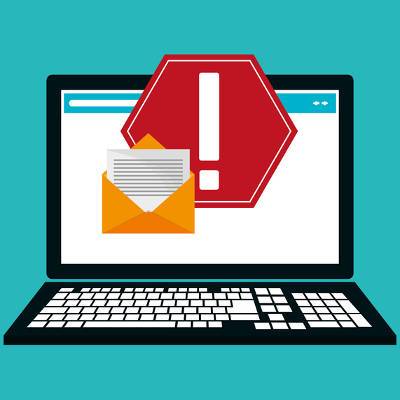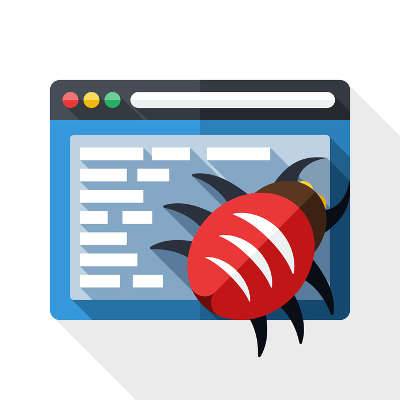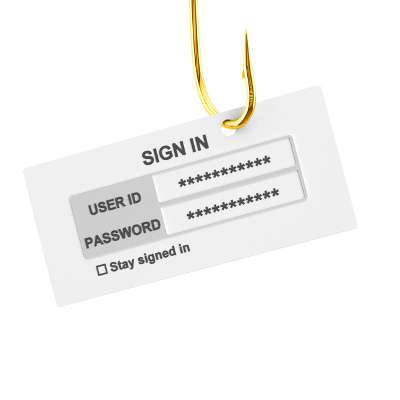In the last few months, there have been several high-profile data security breaches that led to the theft of millions upon millions of non-public information records. Though much of the focus in the aftermath of the breaches was on personal identity theft and prevention, it’s imperative to keep in mind that not all the stolen data records target individuals. Organization entities are also at risk. Vendors and partners that you do business with regularly will probably have record of your company’s non-public information, payment information, or tax ID number.
Macro Systems Blog
The 2016 United States presidential election was an ugly one for several reasons, including the accusation that hacked voting machines could have altered the outcome of the election significantly. Fortunately, there are steps being taken to alleviate the worries that third parties might alter the outcome of such important events.
Most small businesses lack the luxury of an in-house IT department. Even if they do have one, it’s likely a small department run by a few people who have are busy with either implementation projects or simply keeping up with the status quo. With opportunities to invest in the improvement of your infrastructure few and far between, a network audit can make you aware of where your network suffers most, and what you can do about it.
In February of 2016, President Barack Obama passed a Cybersecurity National Action Plan. The plan performed near-term actions and developed a long-term game plan to intensify cybersecurity awareness and protections, protect privacy, and preserve public safety. Taking action against cybersecurity now will assist with ensuring economic and national security, as well as empowering Americans to take better control of their digital security.
Chances are, you’ve heard of spam, but many don’t know how to identify it in the first place, let alone work around it. Frankly, spam can cause some serious damage to your business if not properly dealt with. In today’s blog, you’ll learn what makes spam, “spam,” and how you can keep it from infecting your inbox.
Over the past several months, while watching the news or reading about business and technology, you’ve probably encountered a few words, such as ‘ransomware’ ‘exploit weakness’, and ‘security patch’. These terms are used often, and you may be confused as to what they really mean, and how they relate to you and the security of your business’ data.
It goes without saying that businesses that don’t want to invest in the latest and greatest software solutions will be denying themselves the opportunity for more productivity and efficiency, but most of all, security will be put on the line. A new study has proven that there is a direct correlation between businesses that run older versions of out-of-date operating systems and web browsers, and organizations that suffer from data breaches.
It doesn’t matter which industry your organization falls into. Your business will always be susceptible to threats in some way, shape, or form. Therefore, it’s your responsibility to ensure that your business understands how to protect itself from these threats, before it’s too late. We’ll help you learn more about the various issues that you need to watch out for, and what you can do to stop them.
The Internet of Things is all around us, in our homes, our offices, and even our cars. While this connectivity can provide a more unified and automated approach to daily tasks, it has the downside of enabling certain security threats to go unfettered. A prime example are the IoT-driven botnets that seem to be increasing in popularity.
Microsoft has resolved what a security researcher tweeted was “the worst Windows remote code exec” in his memory. This vulnerability allowed a targeted file to implement remote code execution processes, manipulating the infected system and spreading the infection to other machines. In other word, it’s a bad problem to have. The scariest part: the attack would be triggered if a particular file were to be scanned by the Microsoft Malware Protection Engine.
How many emails does your organization receive every day? Chances are that you can’t find time in your day-to-day operations to maintain and manage your email solution as well as you’d like, and in a world where threats to your organization’s network lurk around every corner, you can never be too careful. How can you make sure that you’re taking proper care of your business’s email infrastructure, without sacrificing the time and manpower required to do so?
 A couple of big names stand out when it comes to hacking attacks, but the recent Sony hack has really taken the cake. The GOP, who call themselves the “Guardians of Peace,” have exposed a ton of details to the public, including the company’s budget, their plans for layoffs, and 3,800 employee Social Security numbers. Now, they’ve released even more information; this time, it’s leaked personal emails, and judging from the content of them, Sony never wanted them to see the light of day.
A couple of big names stand out when it comes to hacking attacks, but the recent Sony hack has really taken the cake. The GOP, who call themselves the “Guardians of Peace,” have exposed a ton of details to the public, including the company’s budget, their plans for layoffs, and 3,800 employee Social Security numbers. Now, they’ve released even more information; this time, it’s leaked personal emails, and judging from the content of them, Sony never wanted them to see the light of day.
 We see a lot of password-bashing these days, and some people have lost faith in them as a security measure. But, unfortunately, a lot of the blame for this lies in human memory. We just don’t pick passwords that are strong enough. In fact, a mind-numbing one in 20 people still use “password” to keep their information safe.
We see a lot of password-bashing these days, and some people have lost faith in them as a security measure. But, unfortunately, a lot of the blame for this lies in human memory. We just don’t pick passwords that are strong enough. In fact, a mind-numbing one in 20 people still use “password” to keep their information safe.
 Most search engines are pretty good at keeping malicious websites out of your search results, but just like any other piece of software on your computer, some search engines do a better job of keeping these threats out of your immediate access. According to TV-Test, a German independent testing lab, there’s a huge difference between the security of the world’s top search engines, like Bing and Google.
Most search engines are pretty good at keeping malicious websites out of your search results, but just like any other piece of software on your computer, some search engines do a better job of keeping these threats out of your immediate access. According to TV-Test, a German independent testing lab, there’s a huge difference between the security of the world’s top search engines, like Bing and Google.
 Business owners primarily concentrate more on the digital effects of hacking rather than the physical side of it. After all, hacking some code through a network can’t harm you or anybody else in the real world, right? Wrong. As shown by a recent hack in Germany, ignoring network security can be a dangerous gambit.
Business owners primarily concentrate more on the digital effects of hacking rather than the physical side of it. After all, hacking some code through a network can’t harm you or anybody else in the real world, right? Wrong. As shown by a recent hack in Germany, ignoring network security can be a dangerous gambit.
 In the past, we’ve been known to go into detail about threats, vulnerabilities, and how to protect your business while online. Distributed denial of service (DDoS) attacks aren’t new in the technology world, but notorious hacking group Lizard Squad has somehow managed to take out Internet service for much of Sweden with a faulty DDoS attack; an unprecedented feat, especially for a ragtag group of irate gamers.
In the past, we’ve been known to go into detail about threats, vulnerabilities, and how to protect your business while online. Distributed denial of service (DDoS) attacks aren’t new in the technology world, but notorious hacking group Lizard Squad has somehow managed to take out Internet service for much of Sweden with a faulty DDoS attack; an unprecedented feat, especially for a ragtag group of irate gamers.
 The holiday shopping season is upon us and more people are choosing to shop from the comforts of their home PC or mobile device rather than fight the crowds. Shopping online is super convenient, but it’s not without the risk of identity theft. The best way to protect your digital shopping cart from hackers is to know how to safely shop online. We’ll show you how.
The holiday shopping season is upon us and more people are choosing to shop from the comforts of their home PC or mobile device rather than fight the crowds. Shopping online is super convenient, but it’s not without the risk of identity theft. The best way to protect your digital shopping cart from hackers is to know how to safely shop online. We’ll show you how.
 This subject isn’t very interesting outside of hospital administrators… or for hospital administrators, but there’s no denying that healthcare is one of the most important industries in our society today; and one that is having a technology overhaul at present. The influx of cheaper and more powerful technology is surely going to be a driving force for healthcare in the 21st century. Under the Health Information Technology for Economic and Clinical Health Act (HITECH), the United States government has followed the lead of other Western nations in forcing entities to upgrade their healthcare practice’s information technology for the betterment of patients, insurers, and health care providers.
This subject isn’t very interesting outside of hospital administrators… or for hospital administrators, but there’s no denying that healthcare is one of the most important industries in our society today; and one that is having a technology overhaul at present. The influx of cheaper and more powerful technology is surely going to be a driving force for healthcare in the 21st century. Under the Health Information Technology for Economic and Clinical Health Act (HITECH), the United States government has followed the lead of other Western nations in forcing entities to upgrade their healthcare practice’s information technology for the betterment of patients, insurers, and health care providers.
















